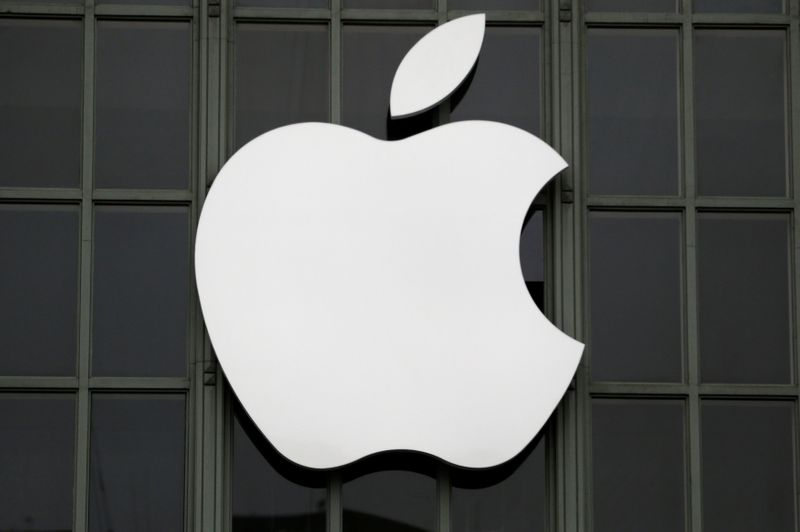Apple adds privacy protections for users, enables storage of IDs on iPhones By Reuters

By Stephen Nellis
(Reuters) – Apple Inc (NASDAQ:AAPL) on Monday said it will offer the ability to store state-issued identification cards digitally on iPhones and added user privacy protections on its iCloud service and email apps, among several updates to the software that runs on its devices.
It also showed updates to its FaceTime video chat app, adding the ability to schedule calls with multiple attendees and making the software compatible with Android and Windows devices.
The move, which puts Apple in more direct competition with companies like Zoom Video Communications Inc that gained prominence during the pandemic, was the first major announcement from Apple’s annual meeting for software developers.
Apple said users will be able to scan state-issued ID cards in participating U.S. states and the cards will be encrypted in a user’s digital wallet, where the company currently offers the ability to store credit cards and transit cards in some U.S. cities. It is working with the U.S. Transportation Security Administration to accept the digital IDs at airports.
Apple changed the name of its paid iCloud storage service to iCloud+ and added privacy features. One, called private relay, obscures a user’s identity and browsing behavior from both Apple and advertisers. Another lets users hide their email address when filling out online forms. Apple said iCloud pricing will not change despite the new features.
Also on the privacy front, Apple said it was updating its email apps to block senders using trackers that detect when an email is opened. The company also introduced a new way to track where third-party services apps send data, and said its Siri voice assistant will no longer need to connect to Apple’s servers to respond to some requests.
The Apple Worldwide Developers Conference, being held online for the second year because of the pandemic, typically attracts thousands of app developers, many of whom hope the company will be listening to their concerns.
Apple’s control over what apps make it onto its app platform, and its 15% to 30% commissions on digital sales, have come under regulatory scrutiny and were at the heart of an antitrust lawsuit brought by “Fortnite” creator Epic Games, where a federal judge is considering how to rule.
Facebook Inc (NASDAQ:FB) will not charge a fee to content creators for at least the next two years, Chief Executive Mark Zuckerberg said moments before the Apple conference.
Apple has said its App Store practices grow the market for mobile software by creating an environment for paid apps that consumers trust.
Not all developers have negative sentiments, said Ben Bajarin, chief executive at Creative Strategies who has been surveying Apple developers and found more than 90% have no plans to stop making apps for Apple devices.
Smaller independent developers that make $1 million or less per year and pay smaller fees tend to feel more positive about the value Apple provides than do developers at larger companies who pay higher fees, according to the results from more than 400 developers so far in the ongoing survey.
However, some complaints are widespread, with more than half of developers saying fees should be capped at 10%, and many wanting more clarity around reasons for rejecting apps from the App Store and how to resolve such issues, Bajarin said.
“Developer support is definitely something that’s a pain point,” he said.

